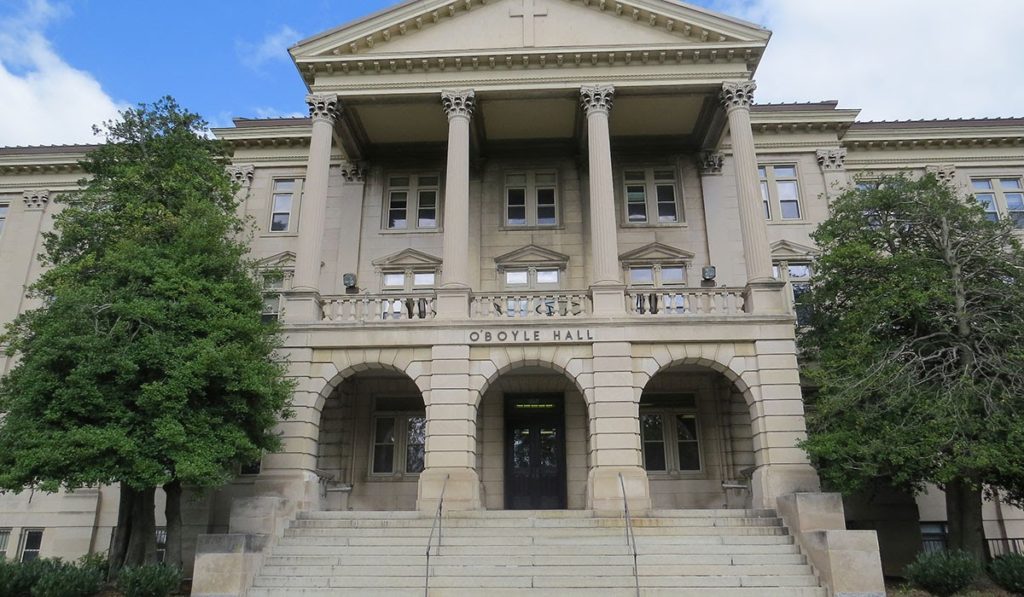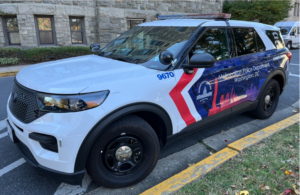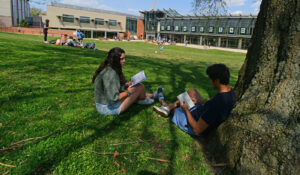How is Catholic University’s Counseling Center Coping with the Pandemic?

Image courtesy of Catholic University
By Jessica Fetrow
Almost eight months into the coronavirus pandemic, another pressing health issue is on the rise along with the number of individuals affected by the virus itself, only the consequences of this issue aren’t as easily recognizable.
Since March, millions of Americans have reported struggling with mental health issues over the course of the pandemic.
According to the Center for Disease Control and Prevention (CDC), the coronavirus has led to a significant increase in mental health issues “related to the morbidity and mortality caused by the disease and to mitigation activities, including the impact of physical distancing and stay-at-home orders.”
The Washington Post reported that the online therapy resource TalkSpace disclosed a 65% increase in clients since mid-February, and a Kaiser Family Foundation poll conducted in March found that nearly half of adult Americans feel that the pandemic is affecting their mental health.
Issues such as anxiety, depression, and substance abuse have moved to the forefront of the struggle against COVID-19, particularly in young adults, and the Counseling Center at Catholic University has been hard at work to ensure that its students receive the best care possible while coping with the adjustments in day-to-day life during these unprecedented circumstances.
According to Dr. Monroe Rayburn, director of the Counseling Center, the center is currently assisting the same volume of students at this time as in previous years.
“Early in the semester, we were a little bit less busy than normal,” Rayburn said. “Things have gradually picked up over time, so that now we are essentially just as busy as we normally would be at the end of any fall semester. Looking back at the whole semester, we have had about 75% of the total number of therapy sessions that we would normally have had. However, with only about 25% of the typical number of students living on campus, I think that being 75% as busy as a normal semester means that we are definitely in demand.”
The Counseling Center is working to reach as many students as possible. Because of state licensing issues, the Counseling Center is only able to offer its full range of services to students within Washington, D.C, and in some cases Maryland and Virginia, as telepherapy sessions are considered to be taking place where the client is located, regardless of where the therapist is located. This presents a challenge to teletherapy sessions, particularly those of college students nationwide.
“Back in March, college students here and throughout the country had to suddenly leave their campuses to return to their home states,” Rayburn said. “That presented many challenges for counseling centers. One of the biggest challenges was that we of course don’t have licenses to practice in each of the 50 states and DC. During the spring and summer, many states gave therapists permission to practice temporarily, but for most states that temporary permission ended back in the early fall.”
According to Rayburn, therapists at the Counseling Center are pursuing permanent licensure in Maryland and Virginia in an effort to reach as many students as possible.
“We realized that many of our students live in the DMV, so multiple staff members have pursued permanent licensure in Virginia and Maryland, so that we could work with students not living in D.C.,” Rayburn said. “Getting licenses in Virginia and Maryland, pursuing temporary licenses where we are still allowed to practice temporarily, and regularly tracking where we are still allowed to temporarily practice, has enabled us to conduct ongoing therapy with a lot of students.”
The Counseling Center has also worked to connect students outside of the DMV area with therapists and resources in their area. A number of therapy groups have been redesigned into a workshop format, so that they are available to all Catholic University students. The Counseling Center has also developed groups that are relevant to coping with the pandemic, such as “Stress Management 101,” “Building Your Pandemic Toolkit,” and “Pandemic Lost Experience Support Group.”
All appointments through the Counseling Center are currently being facilitated remotely. If students on or near campus need an isolated space to conduct their sessions remotely, they are welcome to utilize office spaces in the center for their teletherapy appointments.
The center has also been utilizing their social media accounts to share posts regarding both the pandemic and social justice issues, as well as outreach with different cultural groups on campus.
The Counseling Center offers resources under the Outreach section of its website, such as a Cardinal Coping Guide.
“The other offices within the Division of Student Affairs, and Campus Ministry, are also eager to continue supporting students in the ways we always have,” Rayburn said. “I encourage students to utilize not only the Counseling Center but all the other supportive resources on campus during this stressful time.”
Any student interested in utilizing the Counseling Center or its resources is encouraged to visit the Counseling Center website or call 202-319-5765 during its business hours to schedule an appointment. In the case of an emergency, please contact DPS at 202-319-5111or a 24-hour crisis hotline at 202-561-7000.






